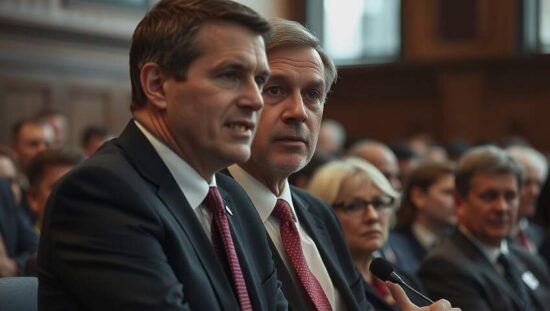Policy Debate Intensifies Over German Heating Law as Experts Question Subsidies
A growing rift within Germany’s ruling coalition is escalating over the contentious heating law, with prominent voices now questioning the efficacy and economic repercussions of extensive subsidies for heat pumps. Manuel Frondel, energy expert at the RWI – Leibniz Institute for Economic Research, has publicly sided with the conservative factions pushing for a significant reduction in government support, sparking a broader debate about the sustainability of current policy.
The core of the disagreement centers on the substantial financial burden of the existing subsidy program. While the government has established a special fund for energy transition initiatives, Frondel argues that the sheer volume of funds allocated to heat pumps renders a continued, high-level subsidy unsustainable. Critically, he contends that these subsidies have inadvertently inflated the market price of heat pumps, creating a distorted economic reality where consumers are paying a premium despite receiving a government handout.
“The current level of subsidy artificially inflates prices” Frondel explained in an interview with the Rheinische Post. “It’s imperative that we re-evaluate this approach.
The political landscape mirrors this economic concern. Markus Söder, leader of the CSU and CDU Economics Minister Katherina Reiche are advocating for subsidy cuts, a position directly opposed by Environment Minister Carsten Schneider of the SPD, who champions the continuation of the existing program.
Frondel advocates for a phased reduction in subsidies, rather than an abrupt termination, to mitigate potential disruption. He suggests a complementary approach utilizing a rising carbon price as a crucial element. By increasing the cost of carbon emissions, the attractiveness of low-carbon alternatives like heat pumps would be naturally enhanced, easing the transition and potentially shielding consumers from immediate cost increases.
The emerging conflict highlights a fundamental tension within the German energy transition strategy: balancing ambitious climate goals with economic realities and consumer affordability. Critics suggest that the current subsidy model, while intended to accelerate the shift towards sustainable heating solutions, risks exacerbating market distortions and hindering long-term progress, potentially generating backlash from consumers burdened by artificially inflated costs. The debate underscores the need for a more nuanced and strategically sound approach to achieving Germany’s climate objectives.





